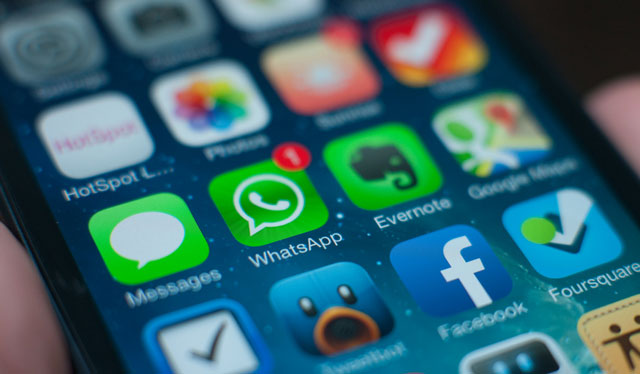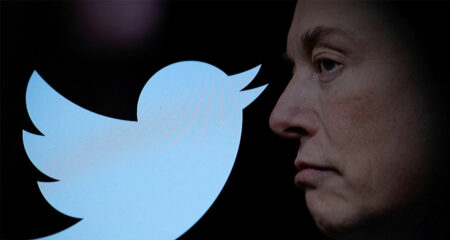 Nineteen billion dollars. Two hundred and ten billion rand. Nearly R500/user. That’s how much Facebook has agreed to pony up for WhatsApp, the fast-growing but still very much loss-making cross-platform mobile instant messaging platform. It’s a daring — perhaps insane — bet by Facebook’s fresh-faced CEO, Mark Zuckerberg, that mobile is indeed the future of social communication.
Nineteen billion dollars. Two hundred and ten billion rand. Nearly R500/user. That’s how much Facebook has agreed to pony up for WhatsApp, the fast-growing but still very much loss-making cross-platform mobile instant messaging platform. It’s a daring — perhaps insane — bet by Facebook’s fresh-faced CEO, Mark Zuckerberg, that mobile is indeed the future of social communication.
But $19bn? The valuation is crazy by any measure – it’s $2bn more than the market capitalisation of Japanese consumer electronics giant Sony. WhatsApp is still technically a start-up. It was founded less than five years ago and employs fewer than 100 people. Just last year, rumours surfaced that Google was in talks to buy the instant messaging service for $1bn.
What a difference a year makes!
Facebook has agreed to pay $16bn for WhatsApp – $4bn in cash and a further $12bn in Facebook shares. As if that weren’t enough, a further $4bn worth of shares will be granted to WhatsApp founders and employees, vesting four years after the close of the deal.
That $19bn price tag values WhatsApp at an estimated 19 times sales. Wires agency Bloomberg points out that the only American companies that fetch such high valuations are drug makers that are developing promising treatments for cancer and other diseases.
WhatsApp certainly doesn’t cure life-threatening ailments. One has to wonder if an aggressive bidding war, perhaps with Google or another big Internet company, pushed up the price. Or did Facebook simply offer WhatsApp a deal it couldn’t refuse?
What is Facebook’s money buying? WhatsApp has 450m active monthly users, 70% of whom are active daily; it’s adding a million more each day. Messaging volume is approaching the SMS volumes generated by all of the world’s mobile operators combined. In South Africa, research firm World Wide Worx says more than half of urbanites already use it. As smartphone penetration increases, so, too, will WhatsApp’s user base.
“WhatsApp is on a path to connect a billion people. The services that reach that milestone are all incredibly valuable,” Zuckerberg said in a statement. But, like its spectacular $1bn acquisition of social photo-sharing service Instagram last year, the revenue model is unclear at best. WhatsApp charges some users a nominal $1/year for the service (after the first year), but many people, especially those in emerging markets, get it completely free of charge, at least so far.
Will Facebook push up the subscription fee and be more aggressive in enforcing it? That would be a risky move given there are so many alternatives. Perhaps the idea is to lock people so thoroughly over the next few years, by making WhatsApp the dominant global instant messaging platform, that they’ll have no other choice but to pay.

WhatsApp users value the fact that the service isn’t plastered with ads. It’s clean, and focused on its core function: instant messaging. Co-founder Jan Koum is said to be openly hostile to the idea of advertising in the app, to the extent that he reportedly has a note on his desk that reads: “No ads! No games! No gimmicks!”
Already, WhatsApp’s founders have promised they’ll keep the service free of advertising. If a no-ads clause is part of the deal, it’s even harder to justify the money Facebook has thrown at the transaction. How the heck is this thing going to make money? Or are we back to the heyday of the dot-com bubble when making money didn’t matter? We all know how that ended.
Whether Facebook overpaid or not — and those that think it got a good deal will point to the fact that Twitter, with far fewer active users, has a valuation of $30bn — it ensures the social network is a major player in the bourgeoning mobile messaging business.
As I wrote in this column last month, there is a land grab taking place. WhatsApp and Tencent’s WeChat (partly owned by South Africa’s Naspers), along with Microsoft (with Skype), Google (with Hangouts) and BlackBerry (with BBM), are in a race to determine which platform will predominate. Whoever is victorious — assuming there is one victor — will have a user base of billions. Facebook is in the business of harvesting eyeballs. WhatsApp’s numbers were too juicy for Zuckerberg to ignore. And the deal keeps the company out of the hands of Facebook’s arch nemesis, Google.
- Duncan McLeod is editor of TechCentral. Find him on Twitter
- This column was first published in the Sunday Times




